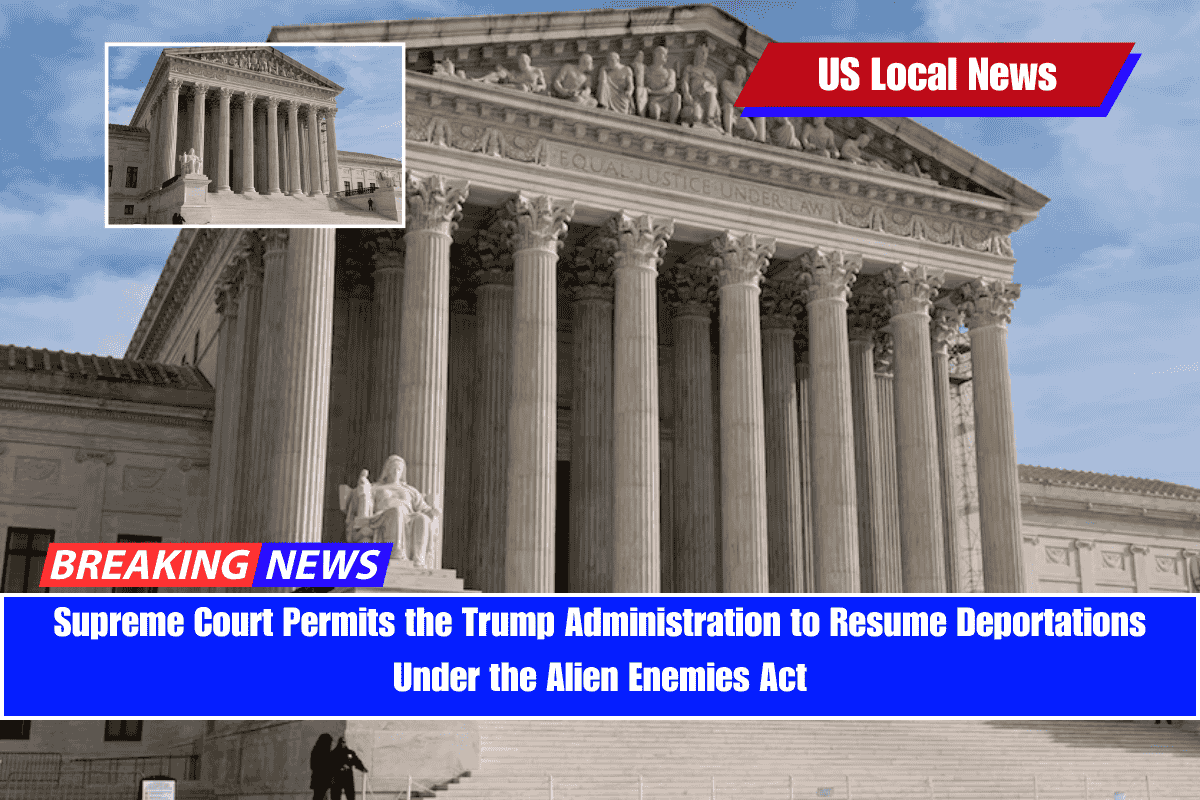The U.S. Supreme Court has given a partial victory to President Donald Trump’s administration, allowing it to resume deportation of certain immigrants linked to a Venezuelan gang.
While the decision doesn’t fully settle the legal debate over the use of the Alien Enemies Act, it clears the way for some deportations to move forward—with certain limits in place to protect immigrants’ rights.
What Did the Supreme Court Decide?
On Monday, the Supreme Court ruled that the legal challenge brought by immigrants was filed in the wrong court. The detainees are being held in Texas, but their lawsuit was filed in Washington, D.C. The court said this made the venue “improper”, and it lifted a judge’s order that had temporarily blocked deportations without hearings.
This allows the administration to continue using the Alien Enemies Act of 1798 to deport noncitizens it claims are part of the Tren de Aragua (TdA) gang.
What Is the Alien Enemies Act?
The Alien Enemies Act is a rarely used law from 1798 that gives the President the power to deport noncitizens from countries the U.S. is at war with. Historically, it has only been used during major conflicts like the War of 1812 and the World Wars. The Trump administration now argues it applies to members of a violent foreign gang, but critics say this stretches the law beyond its original purpose.
Due Process Must Still Be Followed
Although the Supreme Court sided with the administration, the majority also stated that immigrants must be given:
- Proper notice that they are facing deportation
- A reasonable amount of time to file legal challenges
- The right to seek habeas relief in the correct court
“The Supreme Court said individuals must be given due process,” noted Lee Gelernt, one of the attorneys representing the immigrants.
Differing Opinions from the Bench
Justice Sonia Sotomayor strongly disagreed with the ruling, calling it “indefensible”. She warned that the government’s actions pose a serious threat to the rule of law.
Even legal experts have raised concerns. Professor Steve Vladeck from Georgetown University wrote that the court is “forcing more individual lawsuits through a technicality,” making it harder for immigrants to challenge government actions on a wider scale.
While deportations can now move forward, a hearing was scheduled for April 8 to decide whether the current pause on deportations—ordered by Judge James Boasberg—should be extended into a longer-lasting injunction.
Judge Boasberg had previously ruled that alleged gang members deserve a hearing to prove they are not part of the group before facing deportation. Immigrants’ lawyers argue that sending them to El Salvador could result in serious harm or disappearance.











Leave a Reply